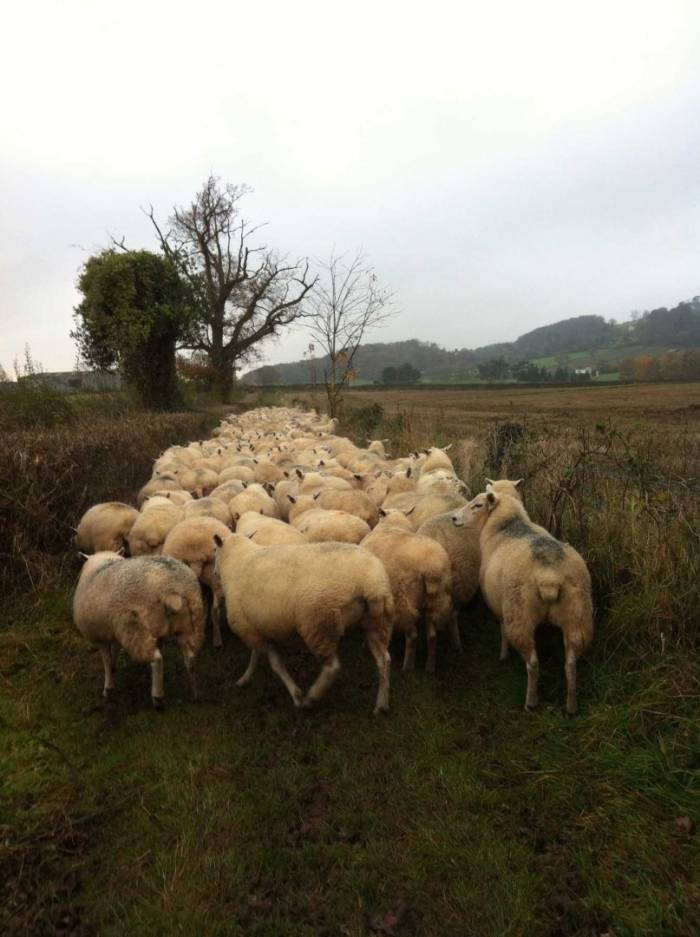10th January 2024
The strange weather patterns of 2023 have had a significant impact on the level and timing of the risk of liver fluke disease across the UK, says experts within the Sustainable Control of Parasites in Sheep (SCOPS) and Control of Cattle Parasites Sustainable (COWS) groups.
As predicted, the dry cold spring, hot early summer and extremely wet July and August, followed by a mini heatwave in early September and heavy rain throughout the autumn and early winter, have all contributed to the disease picture. Experts say this has pushed the fluke risk much later, with the first significant reports of losses due to liver fluke not shared until late November 2023.
Speaking on behalf of the two groups, Rudolf Reichel of the Animal and Plant Health Agency (APHA) says: “There was little evidence of liver fluke activity in the autumn, but towards the end of the year we started to get reports from abattoirs and private post mortem providers of acute fluke cases. This was mirrored by other laboratories across the country and, while overall numbers of cases are not high, this does represent a significant increase in recent weeks.”
This is echoed by Dr John Graham-Brown, University of Liverpool and National Animal Disease Information Service (NADIS) contributor. He says: “The NADIS liver fluke forecast mostly predicted low to medium risk in the normal development period, but the delayed threat this autumn means we are concerned some livestock farmers may get caught out, either because they treated too early or have had negative test results earlier in the autumn and think they are safe.”
Dr Philip Skuce from the Moredun Research Institute also fears some farmers may have a false sense of security. He urges them to continue with testing in early 2024. He says: “Flukicides do not have any residual activity, which means there is no protection for treated livestock if they meet a challenge from fluke later in the season. The risks are so farm-specific this year that the only way to avoid potential losses is to keep testing.”
“We have seen a steady increase in the number of people using the Elisa blood test this year,” says Rebecca Mearns of the Sheep Veterinary Society (SVS) and Biobest Laboratories. “Until quite recently, most samples were negative. But in common with post-mortem data and increases in liver condemnations in November and December, we are seeing more positive samples coming through. Do not rely on an early negative test. If you keep livestock, you need to keep testing throughout the season.”
Diana Williams of the University of Liverpool says: “At this stage of the year (January/February), when we would expect adult flukes to be present in the livers of infected livestock, we can also use faecal testing methods. Dung samples can be tested for an antigen produced by the liver fluke (coproantigen) and of course the detection of fluke eggs is also a valuable tool. Ask your vet or adviser which test is most appropriate for your farm and never rely on a single negative test, particularly if you have had problems in the past.”
Both SCOPS and COWS reiterate their note of caution to anyone thinking of trying to cut the cost of diagnostic tests by pooling samples.
Professor Williams explains: “The only test that can be used with pooled samples is the faecal egg count. This is because the sensitivity of a pooled test is much lower and may give a negative result even though one or more animals are positive. For faecal egg counts the whole pooled sample is processed, so the sensitivity remains comparable with testing individual samples. For blood tests and copro-antigen tests, individual samples should be tested.”
Faecal egg counts are also likely to pick up infections with rumen fluke. Normally this is nothing to worry about and animals should not be routinely treated for adult rumen fluke. If animals are looking poor, losing weight or are dehydrated, speak to your vet about risks from immature rumen fluke (these will not be detected using a faecal egg count). There is more on rumen fluke on the SCOPS and COWS websites at www.scops.org.uk/internal-parasites/liver-fluke/rumen-fluke and www.cattleparasites.org.uk/app/uploads/2023/09/liver-fluke-310823.pdf respectively.
